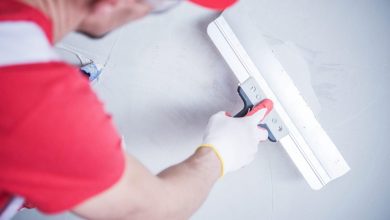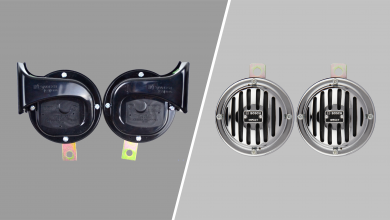The Best Engineered Wood Flooring: A Guide

Congratulations! You’ve researched all the different types of wood flooring and decided that engineered wood is right for you. But now what? Choosing the best engineered wood flooring for your home is trickier than it sounds.
There are so many things to consider! What qualities should you look for in the best engineered wood flooring? What qualities should you avoid? Which engineered woods are the most durable? Which types can be refinished? And with so many manufacturers, what’s the best engineered wood flooring brand to buy?
Worry not, friend. We’re going to answer all of these questions (and more) below—as we show you how to choose the best engineered wood flooring for your home.
TABLE OF CONTENTS [Show]
First of all: what is engineered wood flooring, exactly?
You almost certainly know this already, but we’ll get it out of the way right now—if you think engineered wood flooring is a type of fake wood flooring, you are just plain wrong.
Engineered wood flooring may not be solid throughout, but it is real wood. Specifically, it’s a layer of solid wood fixed to a composite wood core. As such, it’s virtually impossible to tell the difference between solid and engineered wood once they’re installed.
Engineered wood cores are usually made out of plywood, but some products use fiberboard instead. We’ll talk more about that later. The top layer of solid wood, called the veneer, is a strip of real hardwood and can come from just about any tree species.
Installing engineered wood flooring with tools. The bets engineered wood flooring has click-together grooves.
Qualities to look for in the best engineered wood flooring
Ok! Now that we’ve gotten the boring stuff out of the way, let’s talk about the qualities you’re going to want to see in the best engineered wood flooring products.
Always look for a thicker veneer (if you want your floors to last)
When it comes to engineered wood flooring, you should always look for a thicker veneer layer. Why? Because it can be refinished!
If there’s not enough wood in the veneer layer to allow for sanding, you can’t refinish your engineered wood flooring. And if you can’t refinish your floors, you’re basically out of luck once they’re worn out. And that, friend, is what we call a “major disappointment”.
You’ll find a range of veneer thicknesses on the engineered wood market from 1mm–3mm and beyond. This Old House recommends a veneer layer of at least 3 mm, as veneers of this width can be sanded and refinished 2 or more times.
Look for a durable wood species for your veneer
Picking out your wood species—aka the type of tree your wood comes from—is one of the most exciting parts of choosing a new floor. There are tons of different tree species out there, each with a unique, lovely look. But it’s true that some are more durable than others. So can you have beauty and durability?
Of course! And thankfully, we have the Janka Hardness Scale to help us figure out which wood species stand up the best to dents, dings, and scratches. The higher the Janka rating, the more scratch-resistant your flooring.
If you have pets or young ones that are hard on your floors, you’ll definitely want to look for a type of tree that ranks higher on the Janka scale. The best wood flooring for dogs and other pets almost always comes from harder wood species.
The best engineered wood flooring often has a high-quality plywood core
One of engineered wood’s big advantages over solid wood flooring types: it can tolerate fluctuations in temperature and humidity. It’s one of the reasons that engineered wood flooring is often a better choice for kitchens and basements. It’s also what enables homeowners to install comfy wood floor bathrooms.
But are all cores created equal, you ask? Absolutely not. As we said, engineered wood cores are usually made from fiberboard or plywood. Both these materials are made from real wood, but their construction is a little different.
Fiberboard is constructed from random chunks of wood glued together under pressure. Plywood is constructed with individual wood fibers glued in a perpendicular fashion—often called a grain pattern.
When it comes to strength and durability, plywood wins over fiberboard.
And look for plywood with a higher number of layers
The number of layers in your plywood also plays a part in finding the best engineered wood flooring—the typical range is 3-9 layers, but some floors offer more. The more layers (or plies), the more durable and high-quality the product.
Of course, plywood with 9+ layers will likely increase the cost of the flooring. Like mom always said, you get what you pay for.
The more layers of finish, the more durable your engineered wood floor
Most engineered wood flooring comes with a factory finish—usually 5-9 finish coats—so you don’t have to worry about any messy applications once your new floors are installed. Once again, we’d recommend ensuring you have at least 5 coats of finish, or you might be refinishing (or, heaven forbid, bleaching your wood floors) earlier than you’d like.
Some of the best engineered wood flooring products even offer textured finishes that can create interesting or antique looks, if that’s your thing (and yes—that’s our thing).
Qualities to avoid in engineered wood flooring
Let’s be honest—there are pros and cons to just about every type of flooring on the market. Engineered wood Flooring is no different. But if you keep the following advice in mind, you can avoid almost all of the engineered wood disadvantages you may have heard about.
With that in mind, here’s what you should avoid if you’re looking for the best engineered hardwood.
Avoid products that lack a UV-protective finish
As said, there are pros and cons of hardwood flooring. One of the cons: wood (solid or engineered) can fade in direct sunlight if it doesn’t have a UV-protective finish. If your floors are going to be in the sun a lot (and we’re not just talking about sunroom flooring here), make sure to buy a UV-protected product.
If your desired engineered wood doesn’t come with such a finish, ask your local flooring specialists about other options.
Avoid softer wood species (for longevity and resale value)
The truth about engineered hardwood flooring is that it can be one of the most durable wood flooring options out there. But all wood flooring types are susceptible to damage from pets, kids, heels, you name it. Even the best bamboo flooring (which is crazy durable) can be dented or scratched.
Engineered wood floors are no exception, no matter how thick the veneer layer. So do yourself a favor—avoid softer wood species. Pine flooring and Douglas fir flooring, for instance, are both “softwoods”. Solid softwoods may last a very long time, but because they’re more easily scratched, they need to be refinished more often. And with engineered wood, frequent refinishing can quickly wear through your floors—and goodbye resale value.
To protect against scratches from dogs, use a thicker veneer in your engineered wood flooring
Look, we don’t want to make it sound like softer woods don’t make good floors. They do! But choosing between a hardwood and a softwood is like choosing between carpet vs. laminate, or tile vs. laminate, or even tile vs. wood. They’re all fantastic types of flooring, but they each have upsides and downsides. And when it comes to longevity in engineered floors, harder woods are the way to go.
Avoid engineered hardwood with a veneer thinner than 2mm
When the veneer layer of an engineered product is thin—1mm or less—it can’t be sanded and refinished at all. Once again: goodbye resale value.
That means you should avoid buying an engineered wood floor with a veneer layer thinner than 2mm. If that throws a wrench in your budget, maybe think about taking a peek at other options like laminate or different types of vinyl flooring. These days, it’s really hard to tell the difference between vinyl plank and actual hardwood.
Plus, while water-resistant wood flooring is relatively difficult to achieve, these hardwood floor alternatives are often completely waterproof.
Avoid engineered wood floor brands that produce low-quality products
The cons of engineered wood flooring are far and few between. However, we would be remiss if we didn’t talk about the elephant in the room—volatile organic compounds (VOCs).
Some manufacturers of engineered wood have been known to use glue that contains formaldehyde in their products. These floors go through an off-gassing process once they’re installed—which can be hazardous to your family’s health.
But luckily, most manufacturers do not use these adhesives, which is why—and we can’t stress this enough—you need to buy your flooring from a local flooring store rather than a big box store. They specialize in this stuff and don’t sell low-quality products like the box stores do.






